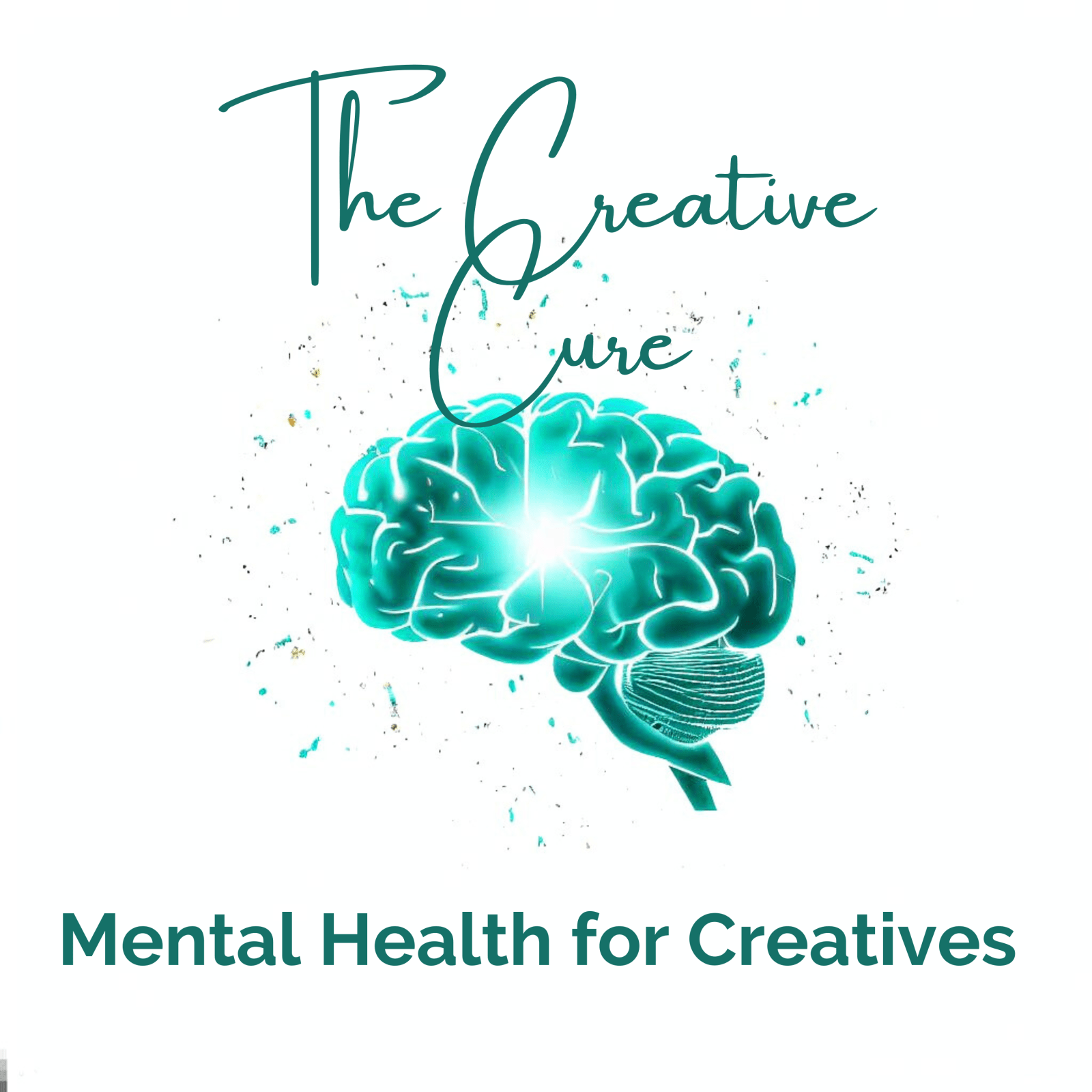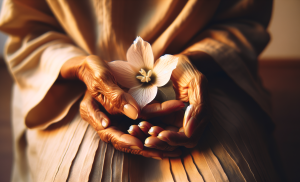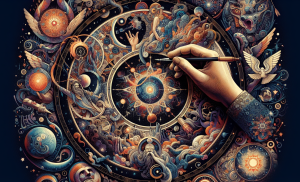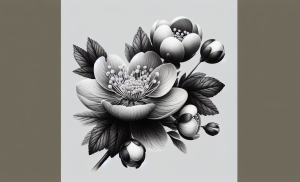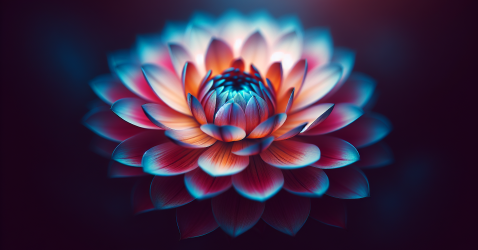Mental Health In The Creative Community: Nurturing Inspiration
In the world of art, music, writing, and all forms of creativity, there is an undeniable beauty that stems from the depth of emotions and experiences that artists pour into their work. However, behind the scenes, the creative community often faces unique challenges when it comes to mental health. This article explores the importance of nurturing inspiration within the creative community and discusses how taking care of one’s mental well-being can lead to even greater artistic achievements.

The Importance of Mental Health in the Creative Community
As a member of the creative community, your mental health plays a crucial role in your overall well-being and ability to thrive. Recognizing the challenges that creatives face and understanding the impact of mental health issues is essential in creating a supportive environment for everyone involved.
Recognizing the Challenges
Being a creative can come with its unique set of challenges. The pressures of meeting deadlines, navigating the uncertainty of the industry, and dealing with rejection can take a toll on your mental well-being. Additionally, the often solitary nature of creative work can lead to feelings of isolation and loneliness.
Understanding the Impact
Mental health issues can significantly impact the lives of creatives. Depression and anxiety are prevalent among this community, with research showing that creatives are more susceptible to these conditions than the general population. Substance abuse and addiction can also be a common struggle, as some creatives may turn to drugs or alcohol as a coping mechanism or to enhance their creativity.
Bipolar disorder, characterized by extreme mood swings, can also be prevalent in the creative community. Eating disorders, such as anorexia and bulimia, can manifest in individuals striving for a certain aesthetic or dealing with body image issues. Finally, imposter syndrome, the feeling of being a fraud despite success and recognition, is a common psychological challenge faced by creatives.
Creating a Supportive Environment
Creating a supportive environment within the creative community is essential for nurturing mental health. By fostering an atmosphere of understanding and compassion, we can break the stigma surrounding mental health issues and encourage open dialogue. This includes promoting self-care, providing resources and support, and eliminating the societal pressures that contribute to mental health challenges in the creative industry.
Common Mental Health Issues Faced by Creatives
As a creative, it is important to be aware of the mental health issues that you or your peers may face. By recognizing these challenges, you can take proactive steps to support your own mental well-being and that of others.
Depression and Anxiety
Depression and anxiety are pervasive in the creative community, with studies suggesting a higher prevalence among artists and writers. The pressure to create exceptional work, along with the emotional intensity of the creative process, can contribute to these conditions. It is crucial to seek support and professional help if you are experiencing symptoms of depression or anxiety.
Substance Abuse and Addiction
Substance abuse and addiction can be prevalent in the creative community, as some individuals may turn to drugs or alcohol as a means of coping with the pressures and challenges they face. However, these substances can exacerbate mental health issues and hinder creativity. It is important to seek help if you are struggling with substance abuse or addiction.
Bipolar Disorder
Bipolar disorder is characterized by extreme mood swings, from manic episodes of heightened energy and creativity to depressive episodes of low mood and productivity. This condition can affect the creative process and stability. Recognizing the signs and symptoms of bipolar disorder is important in order to seek appropriate treatment and manage the condition effectively.
Eating Disorders
Eating disorders, such as anorexia and bulimia, can also be prevalent in the creative community. The pressure to maintain a certain aesthetic or cope with body image issues can contribute to the development of these disorders. Seeking help from professionals who specialize in treating eating disorders is essential for recovery.
Imposter Syndrome
Imposter syndrome is a psychological pattern where individuals doubt their accomplishments and fear being exposed as a fraud. This can be particularly prevalent in the creative community, where the subjective nature of art and the constant comparison to others can fuel feelings of inadequacy. Recognizing imposter syndrome and seeking support from peers and professionals can help combat these feelings.
The Link Between Mental Health and Creativity
There is a complex and often intertwined relationship between mental health and creativity. Exploring this connection can help us better understand the challenges creatives face and the potential benefits of nurturing mental well-being.
Exploring the Connection
Many creatives find solace and catharsis in their art as a form of self-expression and emotional release. The intense emotions experienced by those with mental health issues can fuel creativity and provide a means of coping. Conversely, the creative process can also be emotionally challenging and put strain on one’s mental health.
The Role of Vulnerability
Creativity often requires vulnerability, as artists express their innermost thoughts, feelings, and experiences through their work. This vulnerability can also bring to the surface underlying mental health issues and amplify the emotional toll of the creative process. It is important for creatives to have a support system in place to navigate these challenges.
Enhancing Creative Flow
Mental health plays a significant role in enhancing or impeding the creative flow. When an individual’s mental well-being is in balance, creativity can flourish. Conversely, mental health issues, such as depression or anxiety, can hinder the creative process. By prioritizing mental health, creatives can cultivate an environment that fosters their creative flow.
The Power of Self-Expression
For many creatives, their art serves as a powerful form of self-expression and a means of communicating their thoughts and emotions. By embracing their creativity, individuals can find healing and an outlet for their inner struggles. This power of self-expression can contribute to improved mental well-being and overall life satisfaction.
Stress Management Techniques for Creatives
As a creative, it is important to have effective stress management techniques in place to safeguard your mental health. By incorporating these strategies into your daily routine, you can better navigate the challenges that come with creative work.
Mindfulness and Meditation
Practicing mindfulness and meditation can be beneficial in reducing stress and promoting mental well-being. Taking time each day to focus on the present moment, engage in deep breathing exercises, or engage in guided meditation can help calm the mind and alleviate stress.
Exercise and Movement
Physical activity and movement have been shown to have a positive impact on mental health. Engaging in regular exercise, whether it be yoga, jogging, or dancing, can help reduce stress, improve mood, and increase overall well-being. Finding activities that you enjoy and incorporating them into your routine can enhance your mental health.
Healthy Work-Life Balance
Maintaining a healthy work-life balance is crucial for mental well-being. As a creative, it can be tempting to work long hours and neglect personal time, but this can lead to burnout and decreased creativity. Set boundaries and allocate time for relaxation, hobbies, and spending time with loved ones to achieve a healthy work-life balance.
Setting Realistic Goals
Setting realistic goals is essential for managing stress and maintaining mental well-being. Unrealistic expectations can lead to feelings of failure and self-doubt. Break your larger goals into smaller, achievable tasks, and celebrate your progress along the way. This will help you stay motivated and reduce the pressure you place on yourself.
Seeking Emotional Support
Don’t hesitate to reach out for emotional support when you need it. Whether it’s talking to a trusted friend or family member, joining a support group, or seeking therapy, having a supportive network can provide invaluable guidance and understanding during challenging times.

The Importance of Self-Care and Boundaries
Prioritizing self-care and establishing boundaries is crucial for maintaining mental well-being as a creative. By taking care of yourself and setting limits, you can better manage your mental health and prevent burnout.
Prioritizing Self-Care Activities
Self-care activities look different for everyone, but some common examples include practicing hobbies, spending time in nature, engaging in creative outlets unrelated to your work, and practicing self-compassion. Find what brings you joy and make it a priority in your daily routine.
Establishing Boundaries
Setting boundaries is essential for maintaining a healthy work-life balance. Learn to say no when you are feeling overwhelmed and prioritize your mental well-being. Establishing clear boundaries between work and personal life can help prevent burnout and contribute to overall happiness and productivity.
Recognizing and Addressing Burnout
Burnout is a state of emotional, physical, and mental exhaustion often caused by chronic job stress. Creatives are particularly susceptible to burnout due to the demanding nature of their work. Recognize the signs of burnout, such as fatigue, apathy, and reduced creativity, and take proactive steps to address it. This may include seeking support, taking time off, or reevaluating your workload.
Recharging Creative Energy
Taking breaks and allowing yourself to recharge is essential for maintaining creativity and mental well-being. Engage in activities that inspire you, whether it’s exploring new art forms, visiting galleries, or taking time to reflect and decompress. By nourishing your creative energy, you can prevent burnout and maintain motivation.
The Role of Community and Connection
Building a supportive community and fostering meaningful connections with fellow creatives can have a profound impact on your mental health and overall well-being.
Finding Supportive Creative Networks
Seek out creative communities and networks that are supportive and understanding of the challenges you face. Surrounding yourself with like-minded individuals who can relate to your experiences can be incredibly empowering and inspiring.
Sharing Experiences and Perspective
Sharing your experiences and listening to others can be a powerful tool in fostering connection and empathy within the creative community. By sharing your struggles and triumphs, you contribute to a culture of open dialogue and support.
Collaboration and Inspiration
Collaboration with fellow creatives can bring fresh perspectives, ignite creativity, and provide a sense of camaraderie. By embracing collaboration, you tap into the power of collective creativity, which can have a positive impact on mental well-being.
Reducing Social Isolation
The solitary nature of creative work can contribute to feelings of social isolation. Prioritize opportunities for social interaction, whether it’s attending networking events, joining online communities, or participating in workshops. By actively seeking connection, you can combat feelings of loneliness and build a strong support system.

Seeking Professional Help: Therapy and Counseling
Recognizing the need for professional help is an important step in taking care of your mental health as a creative. Seeking therapy or counseling can provide invaluable support and guidance for addressing mental health challenges.
Recognizing the Need for Professional Help
There may come a point where self-care techniques and support from friends and family are not enough to manage your mental health. If you find that your symptoms are persisting, interfering with your daily life, or worsening, it may be time to seek professional help. Trust your instincts and don’t hesitate to reach out to a mental health professional.
Finding a Suitable Mental Health Professional
When seeking professional help, it is essential to find a mental health professional who understands the unique challenges faced by creatives. Look for therapists or counselors who specialize in working with artists and individuals in the creative industry. They will have a deeper understanding of the pressures, dynamics, and specific needs of the creative community.
Benefits of Therapy and Counseling
Therapy and counseling can offer a safe space to explore your feelings, gain new perspectives, and develop coping strategies. Mental health professionals can provide guidance in managing stress, addressing underlying mental health conditions, and navigating the unique challenges of the creative industry. Investing in your mental well-being through therapy or counseling can have a profound impact on your overall happiness and success as a creative.
Promoting Mental Health Awareness and Advocacy in the Creative Community
Advocating for mental health awareness and promoting a culture of support within the creative community is essential for creating a healthy, inclusive, and nurturing environment for all individuals.
Challenging Stigmas and Stereotypes
Challenge the stigmas and stereotypes surrounding mental health in the creative industry. By educating yourself and others about mental health conditions, you can break down barriers and foster understanding and empathy.
Encouraging Open Dialogue
Encourage open dialogue about mental health within the creative community. Create safe spaces for individuals to share their experiences, struggles, and victories without judgment. By normalizing conversations around mental health, you can reduce the stigma and create an atmosphere of support.
Supporting Mental Health Initiatives
Support mental health initiatives and organizations that are dedicated to promoting mental well-being in the creative community. From fundraisers to awareness campaigns, there are various ways to get involved and contribute to initiatives aimed at improving mental health support.
Using Creativity as an Advocacy Tool
Harness the power of your creativity to advocate for mental health. Through your art, you can raise awareness, challenge stereotypes, and inspire others to prioritize their mental well-being. Creativity can be a powerful tool for fostering change and creating a more supportive environment within the creative community.

Resources and Support for Creatives
Various resources and support systems are available to help creatives navigate their mental health journey. These resources can provide guidance, inspiration, and professional help when needed.
Mental Health Hotlines and Helplines
Mental health hotlines and helplines are available for individuals who are in crisis or need immediate emotional support. These services can provide a lifeline during difficult times and connect you with trained professionals who can offer guidance and assistance.
Online Communities and Forums
Online communities and forums specifically tailored for creatives can provide a space for connection, support, and sharing experiences. Engaging with these communities can help reduce feelings of isolation and create a sense of belonging within the creative industry.
Creative Arts Therapies
Creative arts therapies, such as art therapy, music therapy, and dance/movement therapy, can be powerful tools for exploring emotions, developing coping strategies, and promoting overall mental well-being. These therapies combine creativity with traditional counseling techniques to support individuals in their mental health journey.
Institutions and Organizations
Numerous institutions and organizations are dedicated to providing resources and support for mental health in the creative community. From art schools to mental health nonprofits, these entities offer workshops, counseling services, scholarships, and advocacy initiatives to promote mental well-being.
Self-Help Books and Resources
Self-help books and resources focused on mental health for creatives can provide valuable insights, guidance, and strategies for managing mental health challenges. These resources can help individuals navigate the unique demands of the creative industry and promote overall well-being.
Conclusion
Taking steps towards prioritizing your mental well-being is essential for thriving as a creative. By recognizing the challenges faced by the creative community, understanding the link between mental health and creativity, and implementing stress management techniques, self-care practices, and community support, you can nurture your inspiration and achieve greater success in both your personal and professional life. Remember, your mental health matters, and by fostering a supportive environment, we can create a brighter future for everyone in the creative community.
